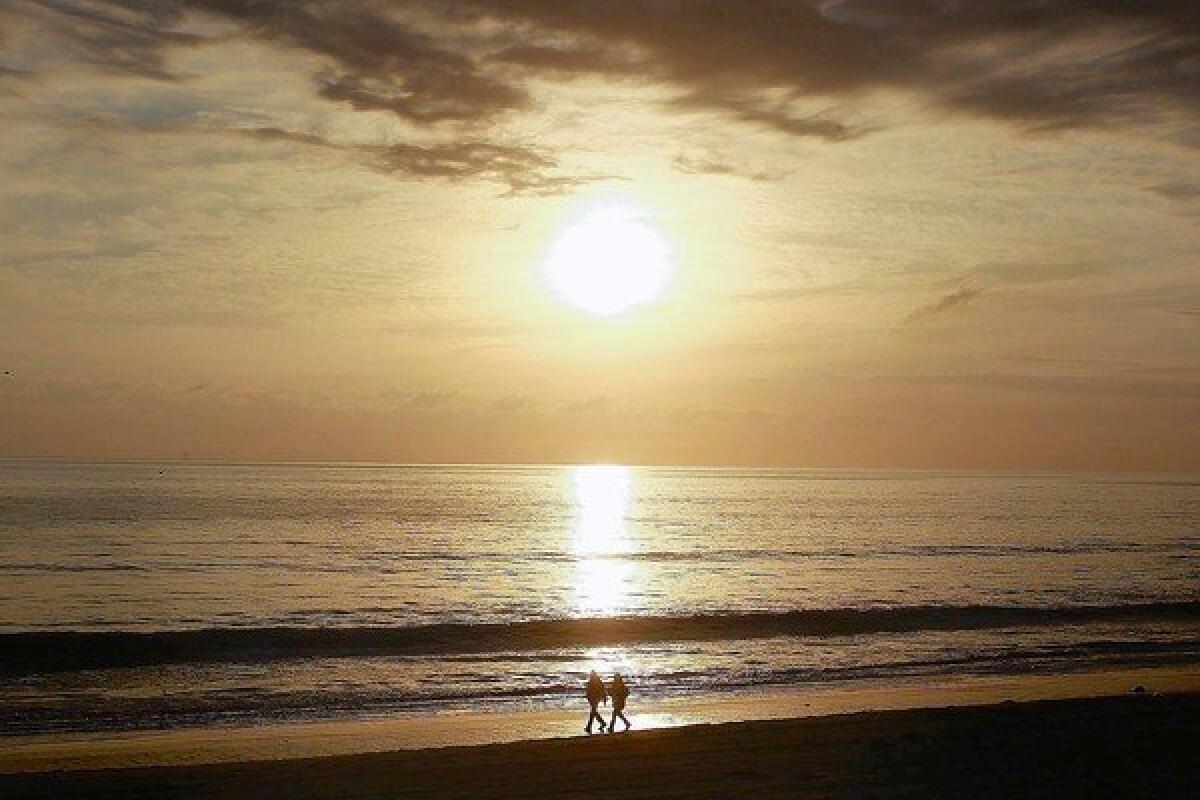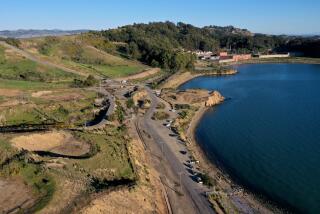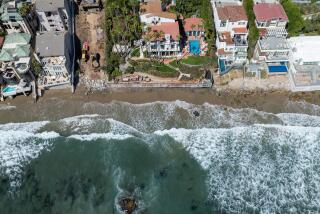‘The Golden Shore’ details a love affair with the sea

Like many California transplants, David Helvarg has repeatedly reinvented himself. He’s been a freelance journalist, a television documentary filmmaker, even a licensed private investigator. He seems to have found his true calling with the sea, or more precisely marine conservation. It began in earnest with his 2001 book, “The Blue Frontier: Dispatches From the America’s Ocean Wilderness.”
Since then, he founded the Blue Frontier Campaign, becoming an environmental activist, hosting an annual summit for small coastal and ocean conservation groups to join his Seaweed Rebellion. He hands out the annual Peter Benchley Ocean Awards, named after the author of the novel “Jaws,” who before his death became a champion of shark conservation, partly out of remorse for stoking public fear of sharks.
In his latest book, “The Golden Shore,” Helvarg dives deep into history to remind us of all the forces that have shaped California’s coastline and near-shore waters — and our attitudes about them.
He pilots us on a California-centric cruise through a few hundred years, revealing the state’s starring role in so many milestones in the New World.
There are the familiar names of European explorers, of course. But he also lays out the Westward Expansion, the dreamers and schemers, the wars, the industrial booms that helped boost California’s population to its current 38 million residents — 80% of them living within 50 miles of the deep blue Pacific. Did you know that just down the road from Helvarg’s East Bay home near the Richmond Shipyard is a national park celebrating Rosie the Riveter’s contribution to the war effort?
We get a quick peek into the lives of Native American tribes and pre-colonial abundance of California waters, the fish, the shellfish, the otters, and the whales that astonished early European explorers. One complained of the “annoying stench” left by fishy exhalations of so many whales as he sailed into Monterey Bay.
Such an annoyance would soon dissipate as Russian trappers, European whalers and fishermen of all origins engaged in serial plunder of the coastal riches.
Hunting and gathering continues to this day, removing so many black sea bass, big lobsters, moray eels and abalone that the state’s kelp beds have become “ghost forests.” That’s the sad name inspired by marine ecologist Paul Dayton, who invites Helvarg into his cliff-top lab overlooking the water at Scripps Institution of Oceanography in La Jolla.
Much of the book delves into its subtitle, “California’s Love Affair With the Sea.” It’s actually more of an extension of his own affair with the sea, as a scuba diver, body surfer and lover of the life aquatic.
There’s no environmental preachiness about “The Golden Shore.” If anything, it’s a pluralist view of the Pacific, taking the perspective of surfers from their surfboards, longshoremen from their docks, sailors from the deck of Navy warships. After growing up in New York, Helvarg seems to have a special appreciation for the splendors of the Pacific.
Helvarg’s writing is at its best when he takes the reader on a tour of the Farallon Islands off San Francisco, weighing and banding fuzzy seabird chicks with biologists, or to observe the clockwork choreography of unloading freighters at the massive ports of Los Angeles and Long Beach, or land aboard one of the Navy’s modern warship as it is underway.
Perhaps the only thing missing is the beach-going experience shared by so many Southern Californians: spreading the towel, slathering on baby oil or sunscreen and flopping down on the sand to beat the inland heat on a summer day — often with a good book.
To Helvarg, what lies beyond can bring us together.
“I’m reminded how things tend to blend once you cross over the beach,” he writes, “how war fighters and harbor pilots might also be surfers and divers and marine scientists get to work for the navy and ex-navy and Coast Guard officers can end up running ocean conservation groups like two of my friends have. Salt water tends to erode professional stovepipes.”
Weiss, a staff writer, covers the environment for the Los Angeles Times.
The Golden Shore
California’s Love Affair With the Sea
David Helvarg
Thomas Dunne Books: 352 pp., $27.99
More to Read
Sign up for our Book Club newsletter
Get the latest news, events and more from the Los Angeles Times Book Club, and help us get L.A. reading and talking.
You may occasionally receive promotional content from the Los Angeles Times.






